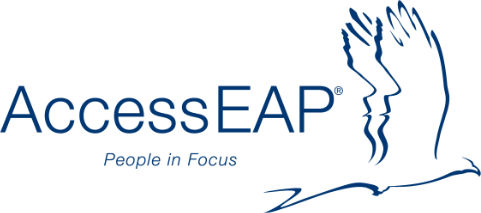
Grow your Emotional Intelligence - a message from Sally Kirkright, CEO AccessEAP
Emotions, especially positive ones, can motivate us to create opportunities and find ways through difficulties. And emotions can be messy. They can get in the way of thinking clearly and they can pull us in opposing directions. Whether we are feeling on top of the world or quite down, it’s very helpful if we can bring awareness to what is happening for us emotionally so we can make wise choices on how to act.
This is where Emotional Intelligence comes in. Often abbreviated to EQ, it’s the ability to identify, understand, and handle emotions in positive ways to relieve stress, build wellbeing, communicate effectively, overcome challenges, and build healthy relationships. The term Emotional Intelligence first appeared way back in 1964 when it hit popularity with the writings of Daniel Goleman in 1995, and it has been in popular use ever since.
Emotions underlie everything we do, and they change the way we think. The ‘broaden-and-build’ theory of emotions, developed by Barbara Frederickson, says that positive emotions, such as happiness and joy, broaden our awareness, encourage curiosity, and build more creative and varied ways of thinking and acting.
As a leader, I am very aware of how important it is for me to be aware of my emotional state, especially when I am making important decisions or responding to situations. I want to approach decision making and situations with a healthy sense of self-confidence and optimism. I know I make better decisions when I feel like this. Responding form feelings of fear or anger are much more likely to lead to unforeseen and unwanted outcomes.
There are 5 main characteristics of EQ: self-awareness, self-regulation, empathy, motivation and social skills. It’s not just about our own emotions. EQ is also about getting better at noticing and identifying others’ emotions so we can relate more easily with other people, and build relationships based on trust and care.
How can we all get better at EQ? Here are some things I try to remember to do myself and I see others at AccessEAP doing too. It helps me to incorporate my emotions skilfully into my work and into the relationships I build with my colleagues:
- Practice being present when you are with others and create opportunities for connection.
- When discussing something, take time to invite others to share their perspectives and listen to how they feel, not only to what they are saying.
- Tune into your own emotions: A helpful way to do this is at the end of each day, write in a journal what emotions and moods you experienced. If you have trouble identifying them, you can use this list as a starting point: joy, fear, sadness, disgust, anger. How did your emotions feel in your body? How did they influence your decision making and behaviour? How did they impact those around you?
- When you notice you are highly emotional, take some time to calm down by using breathing or exercise before engaging with others or making decisions.
- Take a risk, and be vulnerable with someone you trust.
We are all emotional beings. Bringing awareness and intelligence to our emotions makes us more effective managers, leaders, family members, and members of society.
Sally Kirkright, CEO AccessEAP



